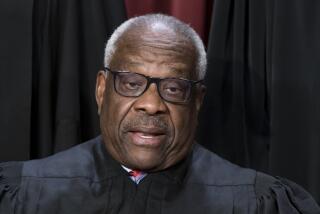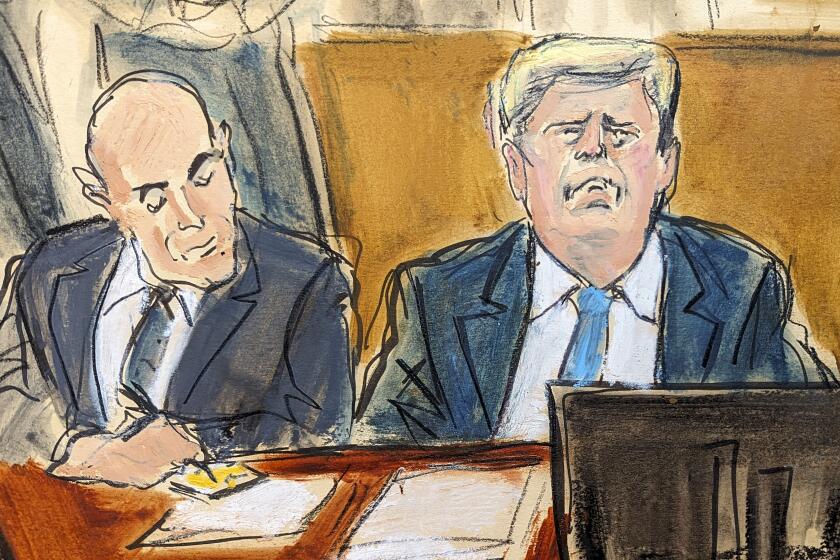As South Koreans Look Ahead, U.S. Policy Is Stuck in the Past
The cumulative indignation of a young, affluent and self-confident generation of South Koreans toward the leadership of their elitist elders has reshuffled the country’s National Assembly and opened up the possibility of dramatic political change.
A month ago, conservative opposition politicians in the National Assembly forced through a lopsided vote to impeach President Roh Moo Hyun after Roh’s minority party members walked out in protest. The pretext for impeachment was a minor infraction of electoral rules. The real reason was the deep-seated ill feeling among old-line establishment politicians toward the fumbling (if worthy) efforts of Roh at political and economic reform. Although Roh has served barely a year of his five-year term, impeaching him looked to the Grand National Party like a sure-fire way to regain political power.
It backfired spectacularly.
Huge demonstrations protesting the impeachment preceded this month’s parliamentary elections that made Roh’s Uri Party the first freely elected government-majority party since the dictatorship of President Park Chung Hee; its representation in the Assembly skyrocketed from 49 to 152 seats. Accenting the election’s general liberal trend was the arrival on the scene of the new socialist Democratic Labor Party. The voting also produced dramatic gender and generational change: 39 women won seats, more than the double the number four years ago, and 129 of those elected are in their 30s or 40s.
The Koreans’ struggle for representative democracy has been intense and concentrated. Little more than two decades separate the Republic of Korea from the start of the iron rule of dictator President Chung Doo Hwan and the huge middle-class demonstrations that brought him down in 1987. Even after democratization, however, corrupt practices continued. The arrogant behavior of highly placed bureaucrats and incumbent politicians reflected a crusty Confucian ethic that too readily translated loyalty into subservience.
While their parents and grandparents were content to perpetuate the political establishment, young Koreans questioned and argued. With only the dimmest recollection of the Korean War, they doubted their elders’ horror stories of the totalitarian North, instead trusting in former President Kim Dae Jung’s “sunshine policy” of eventual unification of North and South. Similarly, the young increasingly challenged their parents’ support, dating from the Korean War, for a U.S. military presence. To them, the U.S. 8th Army was less liberator than foreign occupier. As upsetting to their parents is the fact that the invader China, now South Korea’s principal trading partner, is regarded as new and exciting, one reason why Chinese is preferred to English by many foreign-language students.
Roh is this younger generation’s favorite politician, though he is no wide-eyed revolutionary. What the young find attractive about him is that he wants South Korea to be an independent international player rather than a U.S. client state.
The Bush administration, for all its rhetoric about freedom and democracy, seems spectacularly unprepared to adjust to the changes rippling through free and democratic South Korea. Early on, the president insisted that North Korea was a dangerous security threat, but despite Pyongyang’s offers to negotiate a nuclear stand-down in return for aid and alternate fuel supplies, Bush’s neoconservative advisors successfully urged that there be no negotiations until the North dismantled its nuclear program. When the administration, in a surprising burst of multilateralism, pushed for six-power talks, brokered by Beijing, to secure an agreement with North Korea exchanging economic help for a suspension of its weapons program, U.S. negotiators offered neither agreement nor alternatives for two years. As the Oriental Economist Report put it, the conference amounted to little more than “confusion, vacillation, indecision and delay.”
Meanwhile, the North Koreans, with only the nuclear card to play, have continued their program and may soon be counted as a nuclear power. Yet survival -- and thus a deal -- still seems uppermost in North Korean officials’ minds. During the most recent six-power conference, according to the Oriental Economist Report, the chief North Korean negotiator asked his U.S. counterpart two questions: Would President Bush put in writing that the U.S. would not invade the North? And if North Korea were to dismantle its nuclear program in a verifiable way, what would the U.S. do in return? The American, lacking instructions from Washington, could answer neither.
Vice President Dick Cheney’s visits to China, Japan and South Korea did nothing to bring real negotiations closer. “Time,” he Delphically told a Shanghai audience, “is not necessarily on our side.” He should know. But for all the dangers that a nuclear-armed North Korea would pose -- to the South and the rest of us -- the Bushites keep stalling, possibly in the vain hope that the Chinese will negotiate for them.
The South Koreans continue to urge hard-liners on both sides to start talking, and the outcome of the National Assembly elections greatly strengthens their voice. The North Koreans, furthermore, have lately seemed increasingly eager for real negotiations. For all their bluster, Kim Jong Il’s bureaucrats, their brutalized population still suffering from famine, appear ready to disarm for some kind of quid for their quo. Two weeks ago, in an informal meeting with Americans in California, the North’s ambassador to the United Nations referred to what he saw as the confusing American attitude. Alluding to the nine months of secret negotiations with Libya that led to that country’s abandonment of its nuclear-weapons program, he suggested that nine months of similar talks with his government could produce something far better.
Last week, as young Koreans continued to criticize U.S. policy on the Internet, Kim took his private train to Beijing, where he pledged to be patient and flexible in the six-party talks. Roh, emboldened by his party’s huge success, was no doubt prepared to move on his desire for further talks with the North, pending the Constitutional Court’s probable disapproval of his hasty impeachment. But with all this going on, the Bush administration’s hard-line approach seems to be pushing it further away from the action.
More to Read
Start your day right
Sign up for Essential California for news, features and recommendations from the L.A. Times and beyond in your inbox six days a week.
You may occasionally receive promotional content from the Los Angeles Times.






